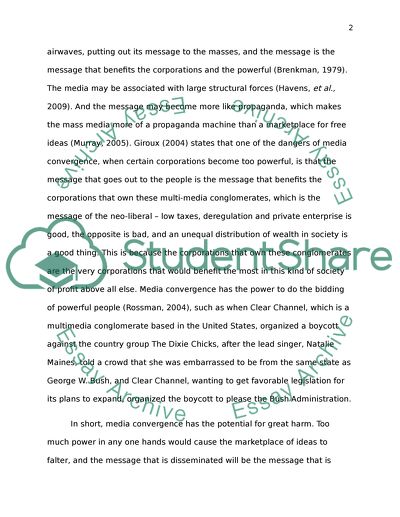Cite this document
(“Media Convergence Essay Example | Topics and Well Written Essays - 1500 words”, n.d.)
Retrieved from https://studentshare.org/journalism-communication/1468721-media-convergence
Retrieved from https://studentshare.org/journalism-communication/1468721-media-convergence
(Media Convergence Essay Example | Topics and Well Written Essays - 1500 Words)
https://studentshare.org/journalism-communication/1468721-media-convergence.
https://studentshare.org/journalism-communication/1468721-media-convergence.
“Media Convergence Essay Example | Topics and Well Written Essays - 1500 Words”, n.d. https://studentshare.org/journalism-communication/1468721-media-convergence.


